Kaine Riggan, executive director of Chamber Music Raleigh in North Carolina, explains how artists and groups in the American South are defying recent political pressures to halt diversity initiatives
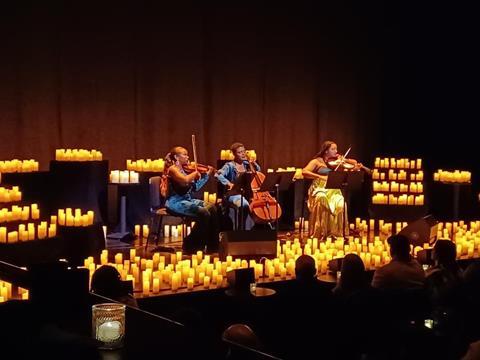
Discover more Featured Stories like this in The Strad Playing Hub
In February 2025, grant-making organisations in the US began revising grant guidelines to comply with President Donald Trump’s executive orders, notably affecting programmes that previously supported diversity, equity and inclusion (DEI) initiatives. But instead of halting efforts for audience diversification due to decreased funding opportunities, some leading arts companies in the South are leaning in and doing it anyway.
Chamber Music Raleigh, for instance, won a 2024 grant from the National Endowment for the Arts (NEA) to take The String Queens, a trio of classically trained African American musicians and educators, to rural presenters throughout the state. Because of the success of that effort, they plan to do it again in the autumn without federal grant support.
‘This group of dynamically virtuous musicians is basically succeeding at flipping the racial demographics of chamber music concerts,’ shared North Carolina arts pioneer Mary J.C. Cresimore, who sponsored The String Queens’ residency along with the NEA. ‘They are doing what many thought couldn’t be done by selling out venues with a 90/10 racial demographic with minorities holding the majority position.’
In fact, of the ten venues that Chamber Music Raleigh took The String Queens to in 2024, nine of them sold out with an 81 per cent African American audience. Because of this feat, the 83-year-old company is programming the trio into its season once again and supporting a statewide block booking effort using the North Carolina Presenters Consortium.
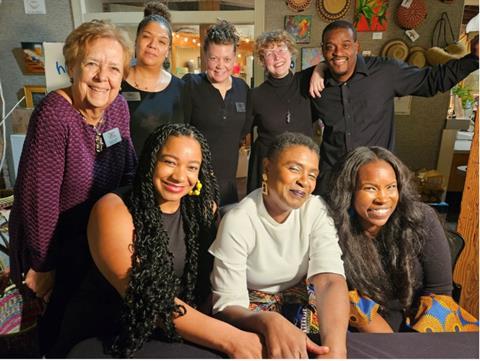
The String Queens performed to a capacity crowd at the Community Council for the Arts in rural Kinston, North Carolina. Sandy Landis, the center’s executive director quipped ‘I’ve been here for 30 years and I’ve never seen any of these people before.’
Audience members have expressed profound appreciation for their performances. One attendee at the Givens Performing Arts Center in Pembroke remarked in an online review, ‘The performance was absolutely incredible, evoking a range of emotions as we watched talented musicians who looked like us skillfully play the violin, cello, and viola.’
This February, South Arts announced a $1.14 million initiative to support cultural sustainability in Metro Atlanta. This programme aims to preserve and promote the diverse cultural heritage of communities of colour through targeted grants and resources. With funding sourced from The Wallace Foundation rather than federal agencies, South Arts will award grants to support communities of colour among South Arts’ nine-state region: Alabama, Florida, Georgia, Kentucky, Louisiana, Mississippi, North Carolina, South Carolina and Tennessee.
Programmes like these show a commitment among Southern arts organisations to promote inclusivity and reach broader audiences while reflecting the diverse communities they serve. As of 2024, approximately 65 per cent of North Carolina’s population identifies as white. But in Durham County and Mecklenburg County, two populous counties where Chamber Music Raleigh presented The String Queens, the population is 59 per cent and 55 per cent BIPOC, respectively.
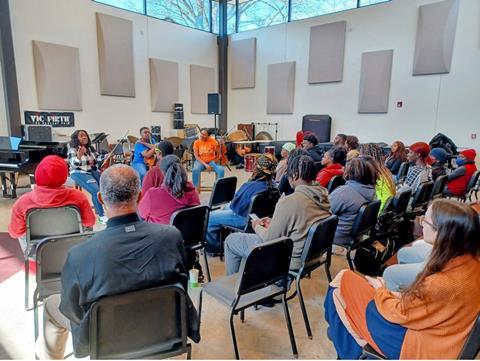
These diversification initiatives also align with a 2024 guide supported by the League of American Orchestras called the Catalyst Guide: Audience Diversification, written by Theodore Wiprud with Dr Karen Yair and Donna Walker-Kuhne, a strategist in audience development and social justice. The Guide explores eight key audience diversification strategies: internal alignment, onstage representation, meeting your community where it is, mutual partnering, messaging, building relationships, the audience experience and the third space.
The concept of the ‘third space’, or programming in communal spaces outside of the concert hall is another strategy Chamber Music Raleigh is embracing to capture new and younger audiences. Having experienced sell-outs at every concert since resuming post-Covid in April 2021 in their resident space at The North Carolina Museum of Art, they are booking internationally touring ensembles for extra dates without even knowing where they are going to perform. The company hired the award-winning quintet WindSync for a four-day mini-residency this April and only later secured performance dates at Raleigh’s Marbles Kids Museum, The North Carolina School for the Blind, and the state-branded modern art museum in Winston-Salem, formerly known as The Southeastern Center for Contemporary Art (SECCA).
Raleigh also embraces diversity by presenting artists from various musical backgrounds, such as jazz, folk or contemporary world music. These collaborations can result in groundbreaking performances that draw in a wider audience and reinvigorate interest in chamber music as a living, evolving art form. They will offer two performances by two NEA Jazz Masters, eight-time Grammy-Award winning trumpeter Terence Blanchard this April and Cuban pianist, composer, and arranger Chucho Valdés in 2026.
Taking place from May 23 to June 8, 2025, in Charleston, South Carolina, the 39th Annual Spoleto Festival USA is also using these strategies to make classical music more accessible and appealing to a broader audience. The inclusion of diverse composers, jazz greats and, for the first time, evening performances aims to attract the city’s 33 per cent BIPOC population.
‘By expanding our performance schedule and introducing flexible subscription options, we hope to welcome a wider range of music lovers to Spoleto Festival USA,’ says Mena Mark Hanna, the festival’s general director and CEO since 2021.
The lineup includes saxophonist Branford Marsalis, trumpeter Ambrose Akinmusire and Blues and Rock and Roll Hall of Famer Mavis Staples. Spoleto’s season also includes world premiere pieces by composer-in-residence Mahsa Vahdat, known for work that often reflects her Iranian heritage.
Even without the benefit of DEI-targeted federal grant funding, the importance of racially diverse audiences in chamber music programming cannot be overstated. Diversity ensures the sustainability of the genre and drives revenue and artistic innovation. By actively reaching out to and welcoming people of all backgrounds, the chamber music community can break free from its stigma and embrace a future where classical music truly belongs to everyone. Through the efforts being made throughout the South in programming, outreach and representation, chamber music can continue to thrive as a relevant and dynamic art form for generations to come.
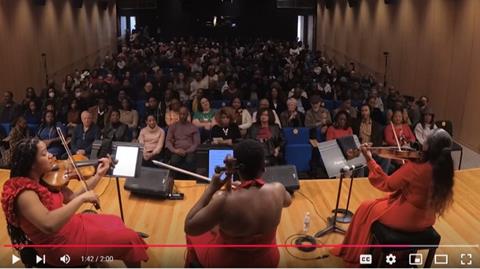
Chamber Music Raleigh’s December 2024 encore presentation by The String Queens was presented as a webcast. This performance and the String Queens’ February concert are available as free webcasts for the entire month of April at chambermusicraleigh.org
Read: Opinion: Embracing diversity in string teaching
Read: 2025 Sphinx Competition winners announced
Read: JD Vance booed at Kennedy Center concert featuring violinist Leonidas Kavakos
Discover more Featured Stories like this in The Strad Playing Hub
The number one source for playing and teaching books, guides, CDs, calendars and back issues of the magazine.
In The Best of Technique you’ll discover the top playing tips of the world’s leading string players and teachers. It’s packed full of exercises for students, plus examples from the standard repertoire to show you how to integrate the technique into your playing.
The Strad’s Masterclass series brings together the finest string players with some of the greatest string works ever written. Always one of our most popular sections, Masterclass has been an invaluable aid to aspiring soloists, chamber musicians and string teachers since the 1990s.
The Canada Council of the Arts’ Musical Instrument Bank is 40 years old in 2025. This year’s calendar celebrates some its treasures, including four instruments by Antonio Stradivari and priceless works by Montagnana, Gagliano, Pressenda and David Tecchler.
Reference

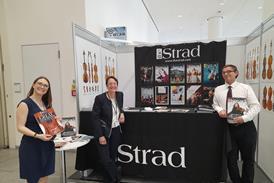

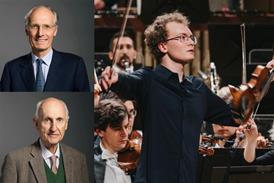
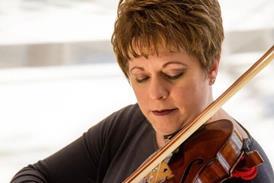






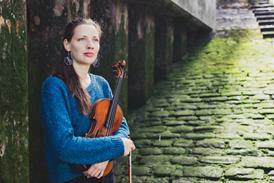
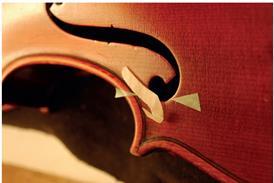
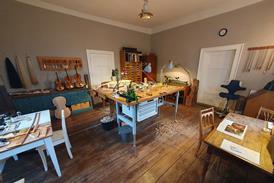
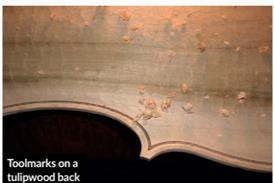























No comments yet